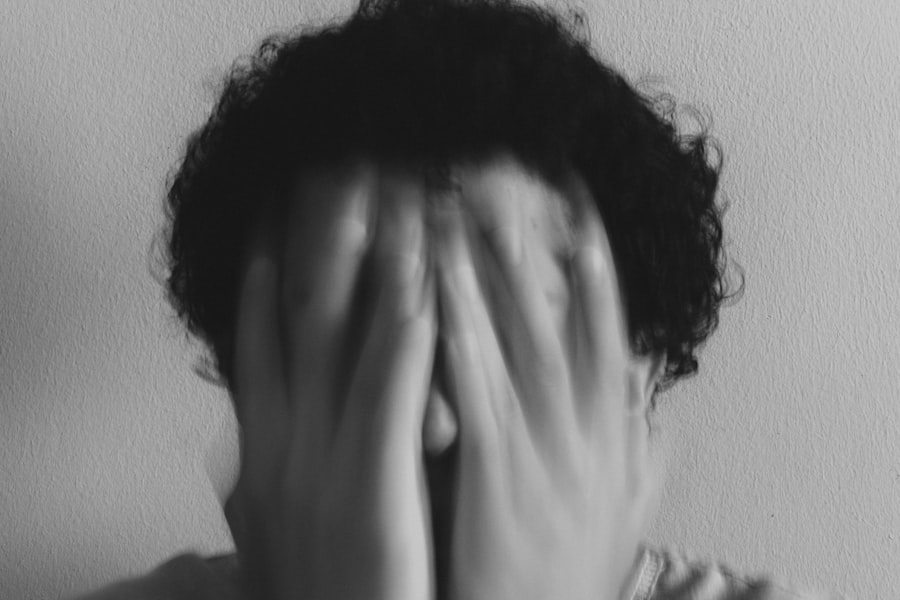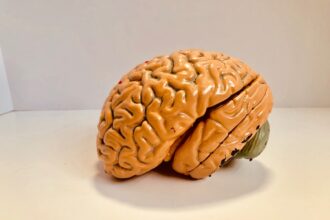Depersonalization and derealization are psychological phenomena that can leave you feeling detached from your own thoughts, feelings, or sense of self. When you experience depersonalization, it may feel as though you are observing yourself from outside your body, as if you are a spectator in your own life. This sensation can be disorienting and unsettling, often leading to confusion about your identity and reality.
On the other hand, derealization involves a sense of detachment from your surroundings. You might perceive the world around you as dreamlike or distorted, making it difficult to connect with your environment or the people in it. These experiences can occur in isolation or together, often triggered by stress, trauma, or anxiety.
While they can be temporary and situational, for some individuals, these feelings can become chronic and significantly impact daily functioning. Understanding these phenomena is crucial for recognizing their effects on mental health and overall well-being. By gaining insight into what depersonalization and derealization entail, you can better navigate the complexities of these experiences.
Key Takeaways
- Depersonalization is a feeling of being detached from one’s thoughts, feelings, and body, while derealization is a sense of unreality or detachment from the environment.
- Symptoms of depersonalization and derealization include feeling like an outside observer of one’s thoughts or body, feeling like the world is artificial or dreamlike, and experiencing emotional numbness.
- Causes of depersonalization and derealization can include trauma, stress, anxiety, depression, and substance abuse.
- Depersonalization and derealization can affect daily life by causing difficulties in concentration, memory, and emotional responsiveness.
- Diagnosis of depersonalization and derealization involves a thorough evaluation of symptoms and ruling out other medical or mental health conditions.
Symptoms of Depersonalization and Derealization
The symptoms of depersonalization and derealization can vary widely from person to person, but they often share common threads. You may find yourself feeling emotionally numb or disconnected from your thoughts and feelings. This emotional detachment can lead to a sense of emptiness or a lack of purpose, making it challenging to engage fully in life.
Additionally, you might experience a distorted perception of time, where moments seem to stretch or compress in ways that feel unnatural. In terms of derealization, the world around you may appear foggy or unreal. Objects might seem distorted in size or shape, and familiar places may feel foreign or strange.
You could also experience auditory distortions, where sounds seem muted or amplified in unusual ways. These symptoms can be distressing and may lead to increased anxiety or panic, particularly if you struggle to understand what is happening to you. Recognizing these symptoms is the first step toward seeking help and finding effective coping strategies.
Causes of Depersonalization and Derealization

The causes of depersonalization and derealization are complex and multifaceted. Often, these experiences are linked to significant stressors or traumatic events in your life. For instance, if you have faced a traumatic incident such as an accident, abuse, or loss, your mind may resort to depersonalization as a defense mechanism.
This dissociative response allows you to distance yourself from the emotional pain associated with the trauma, albeit temporarily. Additionally, anxiety and panic disorders can contribute to the onset of these feelings. When you are overwhelmed by anxiety, your brain may trigger depersonalization or derealization as a way to cope with the intense emotions you are experiencing.
Substance use can also play a role; certain drugs or alcohol can induce feelings of detachment and unreality. Understanding the underlying causes of these experiences is essential for developing effective treatment plans and coping strategies tailored to your unique situation.
How Depersonalization and Derealization Affect Daily Life
| Impact | Effects |
|---|---|
| Emotional Impact | Feelings of detachment, numbness, and emotional blunting |
| Social Impact | Difficulty connecting with others, feeling isolated |
| Work/School Impact | Decreased productivity, difficulty concentrating |
| Physical Impact | Heightened anxiety, panic attacks, and physical symptoms |
| Quality of Life | Impaired ability to enjoy activities and relationships |
Living with depersonalization and derealization can significantly impact your daily life and overall quality of existence. You may find it challenging to concentrate on tasks at work or school due to the persistent feeling of being disconnected from reality. This detachment can lead to difficulties in forming relationships, as you might struggle to connect with others emotionally or feel present during social interactions.
The sense of isolation that often accompanies these experiences can exacerbate feelings of loneliness and despair. Moreover, the unpredictability of when these episodes will occur can create a constant state of anxiety. You might avoid situations that trigger your symptoms, leading to a more restricted lifestyle.
This avoidance behavior can further entrench feelings of isolation and disconnection from the world around you. Recognizing how these experiences affect your daily life is crucial for seeking support and implementing strategies that promote a sense of grounding and connection.
Diagnosis of Depersonalization and Derealization
Diagnosing depersonalization and derealization typically involves a comprehensive evaluation by a mental health professional. During this process, you will likely discuss your symptoms in detail, including their frequency, duration, and any potential triggers. The clinician may also inquire about your medical history, mental health background, and any traumatic experiences that could contribute to your symptoms.
To receive a formal diagnosis, your experiences must meet specific criteria outlined in the Diagnostic and Statistical Manual of Mental Disorders (DSM-5). This manual categorizes depersonalization-derealization disorder as a dissociative disorder characterized by persistent or recurrent episodes of depersonalization or derealization that cause significant distress or impairment in functioning. Understanding the diagnostic process can help alleviate some anxiety surrounding your experiences and pave the way for effective treatment options.
Treatment Options for Depersonalization and Derealization

Treatment for depersonalization and derealization often involves a combination of therapeutic approaches tailored to your individual needs. One common method is psychotherapy, particularly cognitive-behavioral therapy (CBT). This form of therapy focuses on identifying negative thought patterns and replacing them with healthier perspectives.
Through CBT, you can learn coping strategies to manage anxiety and reduce the frequency of depersonalization episodes. In some cases, medication may be prescribed to help alleviate symptoms associated with anxiety or depression that often accompany depersonalization and derealization. Antidepressants or anti-anxiety medications can provide relief for some individuals, although they are not specifically designed to treat dissociative disorders.
Collaborating closely with a mental health professional will help determine the most appropriate treatment plan for your unique situation.
Coping Strategies for Managing Depersonalization and Derealization
In addition to professional treatment options, there are several coping strategies you can implement to manage depersonalization and derealization effectively. Grounding techniques are particularly helpful in reconnecting with your body and surroundings during episodes. These techniques may include focusing on your breath, engaging in physical activities like walking or stretching, or using sensory experiences such as holding an object with different textures.
Mindfulness practices can also be beneficial in cultivating awareness of the present moment. By practicing mindfulness meditation or engaging in activities that promote mindfulness—such as yoga—you can develop a greater sense of connection to yourself and your environment. Journaling about your experiences may also provide insight into triggers and patterns associated with your symptoms, empowering you to take proactive steps toward managing them.
Understanding the Link Between Depersonalization/Derealization and Mental Health Disorders
Depersonalization and derealization often coexist with various mental health disorders, creating a complex interplay between symptoms. Conditions such as anxiety disorders, depression, post-traumatic stress disorder (PTSD), and borderline personality disorder frequently feature dissociative symptoms as part of their clinical presentation. Understanding this link is essential for developing comprehensive treatment plans that address both the dissociative experiences and any underlying mental health issues.
Recognizing that depersonalization and derealization are not standalone conditions but rather interconnected with broader mental health challenges can help reduce stigma surrounding these experiences. It emphasizes the importance of seeking help from qualified professionals who understand the nuances of dissociation within the context of mental health disorders.
The Impact of Depersonalization and Derealization on Relationships
The effects of depersonalization and derealization extend beyond individual experiences; they can significantly impact relationships with family members, friends, and romantic partners. You may find it challenging to connect emotionally with loved ones when you feel detached from yourself or your surroundings. This emotional distance can lead to misunderstandings or feelings of frustration among those who care about you.
Moreover, loved ones may struggle to comprehend what you are experiencing if they have never encountered similar feelings themselves. This lack of understanding can create additional strain on relationships, leading to feelings of isolation for both you and those around you. Open communication about your experiences is vital for fostering empathy and support within your relationships.
How to Support Someone with Depersonalization and Derealization
If someone close to you is experiencing depersonalization or derealization, offering support can make a significant difference in their journey toward healing. First and foremost, it’s essential to listen without judgment when they share their experiences. Validate their feelings by acknowledging that what they are going through is real for them, even if it may be difficult for you to understand fully.
Encouraging them to seek professional help is also crucial; gently suggest therapy options while respecting their autonomy in making decisions about their treatment. Additionally, educating yourself about depersonalization and derealization can equip you with the knowledge needed to provide informed support. Being patient and understanding as they navigate their experiences will foster a sense of safety that encourages open dialogue.
Research and Future Directions for Understanding Depersonalization and Derealization
Research into depersonalization and derealization is ongoing, with scientists striving to uncover the underlying mechanisms that contribute to these phenomena. Advances in neuroimaging techniques have allowed researchers to explore brain activity associated with dissociative experiences, shedding light on potential biological factors involved in their onset. Future studies aim to develop more effective treatment modalities tailored specifically for individuals experiencing chronic depersonalization or derealization.
By enhancing our understanding of these complex phenomena through continued research efforts, we can work toward reducing stigma surrounding dissociative disorders while improving support systems for those affected by them. In conclusion, understanding depersonalization and derealization is essential for recognizing their impact on mental health and daily life.
Depersonalization and derealization disorder is a complex mental health condition characterized by persistent feelings of detachment from one’s self or surroundings. Individuals experiencing this disorder often describe a sensation of observing themselves from outside their body or feeling as though the world around them is unreal. These symptoms can be distressing and interfere with daily functioning. For a deeper understanding of the symptoms and potential treatment options for depersonalization and derealization disorder, you can explore a related article on the topic by visiting Unplugged Psych. This resource provides valuable insights into the disorder and offers guidance for those seeking help.
LEARN MORE About Unmasking the Mysteries Behind Depersonalization and Derealization
FAQs
What is depersonalization and derealization disorder?
Depersonalization and derealization disorder is a mental health condition characterized by feeling detached from oneself (depersonalization) and feeling detached from the world or surroundings (derealization). These feelings can be distressing and may interfere with daily functioning.
What are the symptoms of depersonalization and derealization disorder?
Symptoms of depersonalization and derealization disorder may include feeling like an outside observer of one’s thoughts, feelings, and body (depersonalization), feeling like the world is unreal or distorted (derealization), emotional numbness, and a sense of detachment from one’s surroundings.
What causes depersonalization and derealization disorder?
The exact cause of depersonalization and derealization disorder is not fully understood, but it is believed to be related to a combination of biological, psychological, and environmental factors. Trauma, stress, anxiety, and certain personality traits may contribute to the development of this disorder.
How is depersonalization and derealization disorder diagnosed?
Depersonalization and derealization disorder is diagnosed based on a thorough assessment of symptoms, medical history, and ruling out other potential causes. A mental health professional, such as a psychiatrist or psychologist, can conduct a comprehensive evaluation to make an accurate diagnosis.
What are the treatment options for depersonalization and derealization disorder?
Treatment for depersonalization and derealization disorder may include psychotherapy, medication, and self-help strategies. Cognitive-behavioral therapy (CBT) and mindfulness-based approaches have shown to be effective in managing symptoms. Medications such as antidepressants or anti-anxiety medications may also be prescribed in some cases.
Can depersonalization and derealization disorder be cured?
There is no specific cure for depersonalization and derealization disorder, but with appropriate treatment and support, many individuals can learn to manage and reduce their symptoms. It is important to seek professional help and develop coping strategies to improve quality of life.




